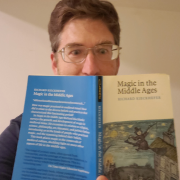I wrote earlier about the need to bring ChatGPT into the classroom of classical Christian schools in the context of teaching information literacy. But that is just the beginning of creating AI-centric classical schools. The ideological challenges wrought by AI also present an enormous opportunity through bringing to the forefront philosophical questions that, for many students, may have previously seemed remote.
The mind-body problem, the epistemic virtues, the meaning of being human, the nature of consciousness, the difference between computation and knowledge, all rush to the forefront and become extremely pressing in the age of AI.
Similarly, classic literature that may previously have seemed remote— Ovid’s description of the Pygmalion myth, Plato’s Republic and Sophist, Aristotle’s Nicomachean Ethics, Descartes’ Discourse on Method, Berkeley’s A Treatise Concerning the Principles of Human Knowledge, Milton’s Paradise Lost, Shelley’s Frankenstein, Huxley’s Brave New World, Heidegger’s The Question Concerning Technology—may have a fresh relevance. Indeed, in discussions of AI and its adjacent controversies (transhumanism, techno-humanism, singularity theory, the simulation hypothesis, etc.), teachers have a tremendous opportunity for engaging students with the Great Books and the Great Ideas.
For this type of engagement to be fully effective, it must be driven at the level of administration. Administrators may want to proactively encourage interdisciplinary collaboration among faculty to develop curricular frameworks that integrate the practical and theoretical aspects of information technology into different subjects. For example, if a senior thesis coordinator is providing instruction on how to be information literate when using AI, they could draw connections to what students learned in philosophy class while studying Aristotle’s account of intellectual virtues; this could be integrated into discussions of wisdom when the Bible class studies Proverbs, which in turn could be linked to what students learn in history class about changing attitudes toward information after the rise of the printing press.
This is an enormous opportunity. Classical schools get ready to revamp your curriculum around AI!
Further Reading
- Bring AI Into Classical Christian Schools!
- Why I Don’t Reject AI, and Why I am Not a Luddite
- Why AI is Not Satanic
- Entire Series on Information Literacy
- Why I Don’t Reject AI, and Why I am Not a Luddite


